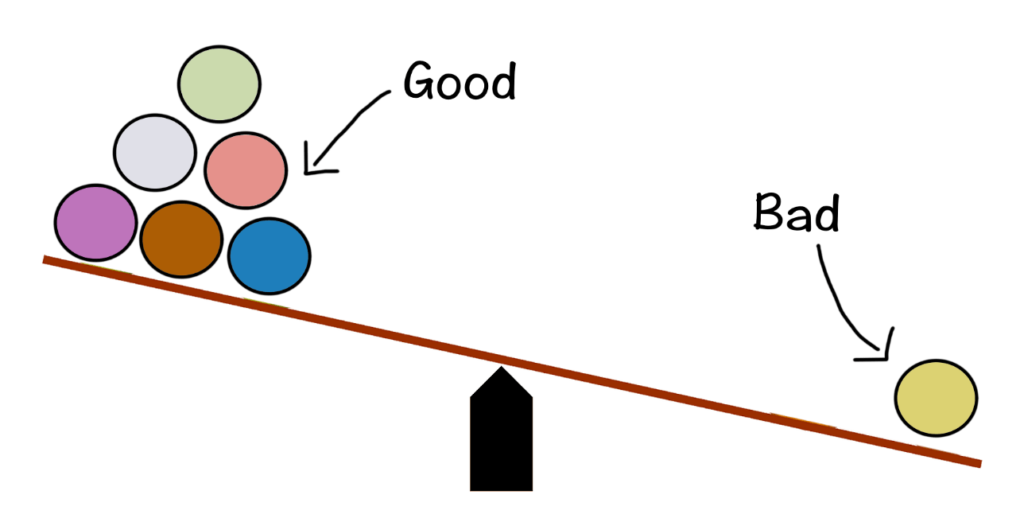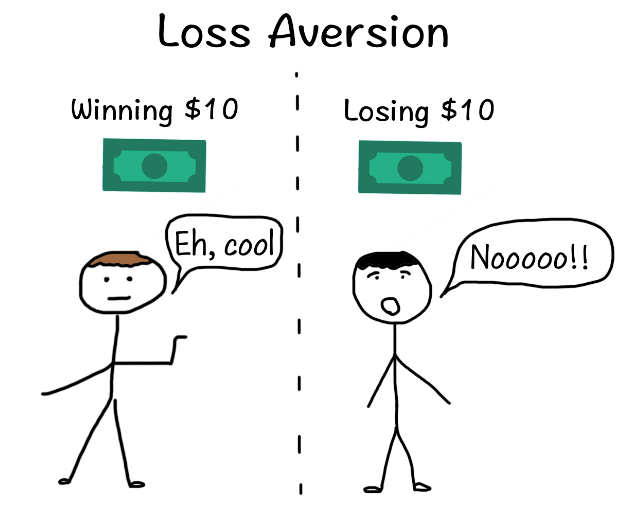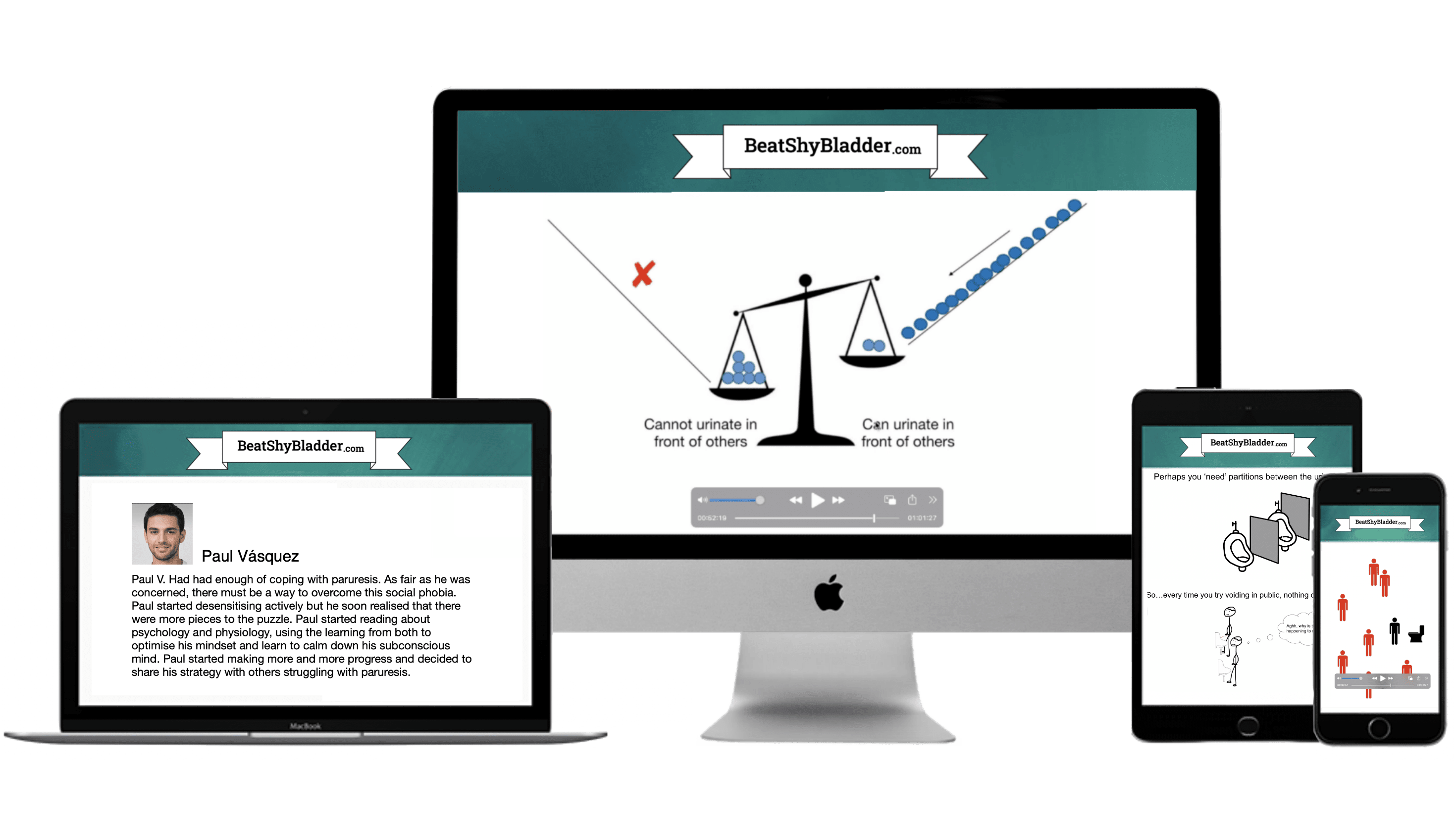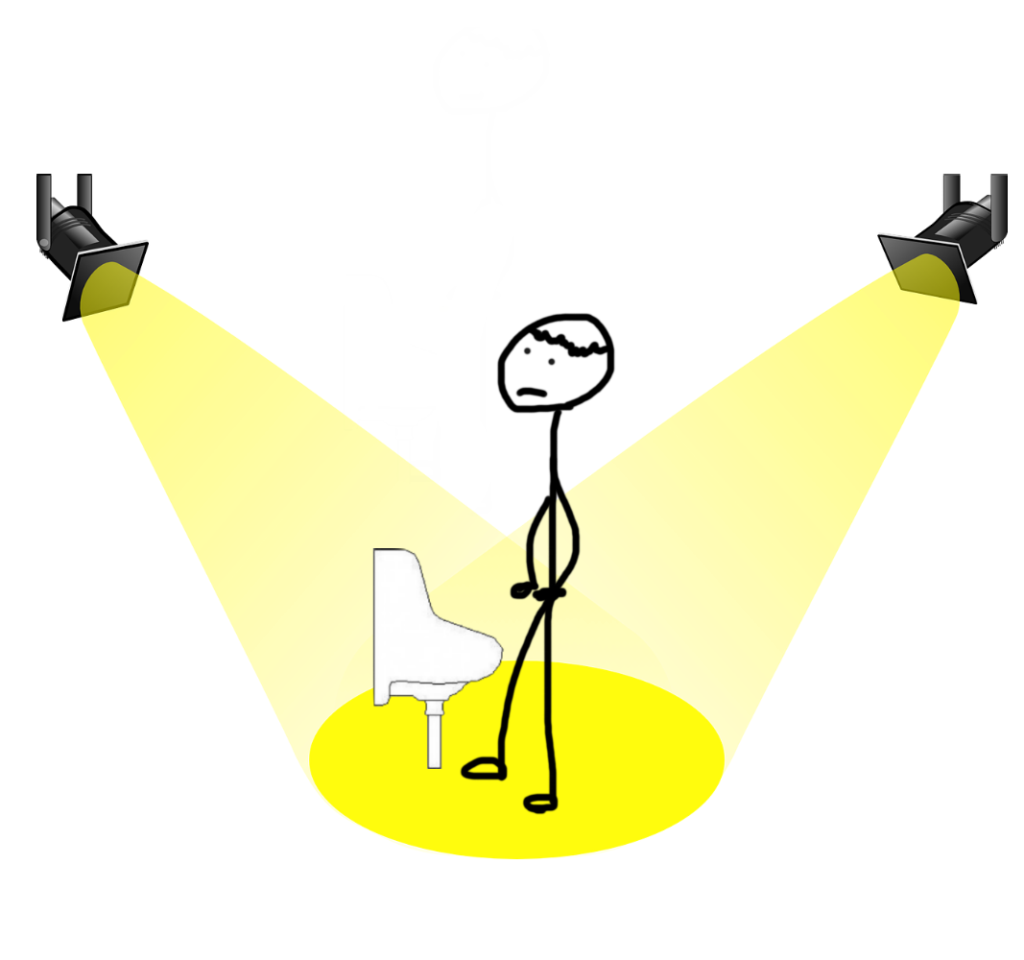What is the negativity bias?
The negativity bias is a cognitive bias that refers to the tendency of people to pay more attention to, remember more vividly, and be more affected by negative experiences and information than by positive experiences of equal magnitude.

In other words, negative experiences and information tend to have a stronger impact on our thoughts, emotions, and behavior than positive ones.
Evolutionary background of the negativity bias
The negativity bias is thought to be a result of evolution, where our ancestors’ survival relied on being able to quickly recognize and respond to potential threats and dangers in their environment. This means that negative information, such as a predator or a poisonous plant, required immediate attention and action to avoid harm. In contrast, positive information, such as the location of a fruit tree, was helpful but not essential for immediate survival.
Here is another way to look at this bias, if someone likes you, they might give you a smile and a pat on the back. On the other hand, if someone dislikes you, you may feel compelled to constantly watch your back to avoid ill-intentioned pranks or even worse…
This bias is great for survival, but not great for having a great life.
In modern times, the negativity bias can have negative consequences for our mental health and well-being. For example, we may dwell on negative feedback or criticism, even when there is a lot of positive feedback or praise. Or, we may place too much weight on the negative experience of a ‘misfire’ (not being able to void in a public restroom).
How does it interfere with shy bladder syndrome?
Loss aversion
The negativity bias is related to ‘loss aversion’, a bias that makes the fear of loss much more powerful than the prospect of gain of equal magnitude.

The fear of judgement or embarrassment (negative experiences) can outweigh the prospect of benefit (overcoming paruresis) and therefore cause people to engage in their avoidance behaviour thereby reinforcing their shy bladder syndrome.
People with paruresis may be more sensitive to negative feedback or perceived negative evaluation from others, which can trigger feelings of shame, embarrassment, and anxiety. This heightened sensitivity to negative evaluation can make it difficult for them to relax and feel comfortable enough to urinate in public restrooms or in the presence of others.
Self-fulfilling prophecy
In addition, the negativity bias can also lead to a self-fulfilling prophecy, where a person with paruresis may anticipate negative reactions from others, such as judgment or criticism, and then feel even more anxious and avoidant as a result
How to avoid the negativity bias
Focus on the positive
Firstly, by simply being aware of the negativity bias, you can consciously remind yourself that any automatic emotional response to a negative situation (e.g. others realising you struggle with paruresis) is typically disproportionally large to the actual experience. Understanding the negativity bias can help you become more aware of your tendencies to focus on negative experiences and information, and consciously shift our attention to positive aspects of your life.
Mindfulness
A study carried out in 2011 revealed that consistent mindfulness breathing exercises (meditation) results in a heightened sense of positive judgement and decreases the negativity bias1.

Gradual Exposure therapy
They say confidence comes from competence. But don’t you need confidence in order to competently pass urine in public restrooms? This cycle can be broken by performing gradual exposure therapy. This step by step process can help you gain the confidence to successfully void in public environments.
Overcome Shy Bladder Syndrome Today
Get your hands on the time tested Beat Shy Bladder Blueprint
- Self Auditing
- Protocol Reviews
- Knowledge Trove
- Feedback Loops
- Heart Rate Variability
- Visualisation
- Mindset Upgrade
- Desensitisation




